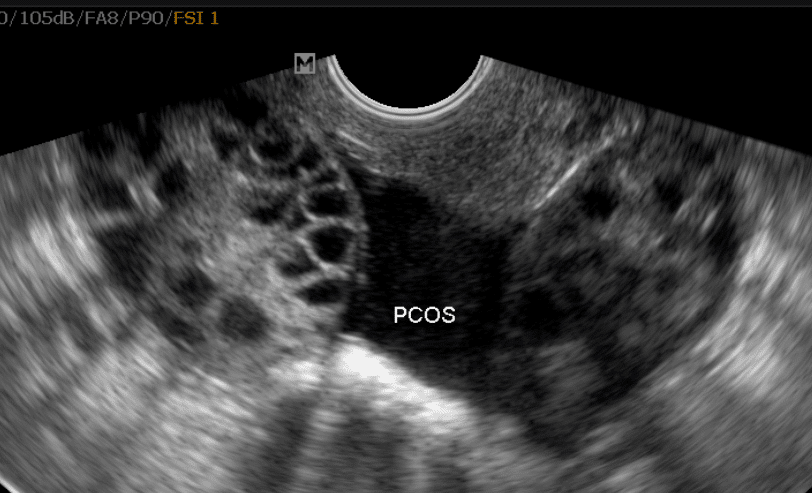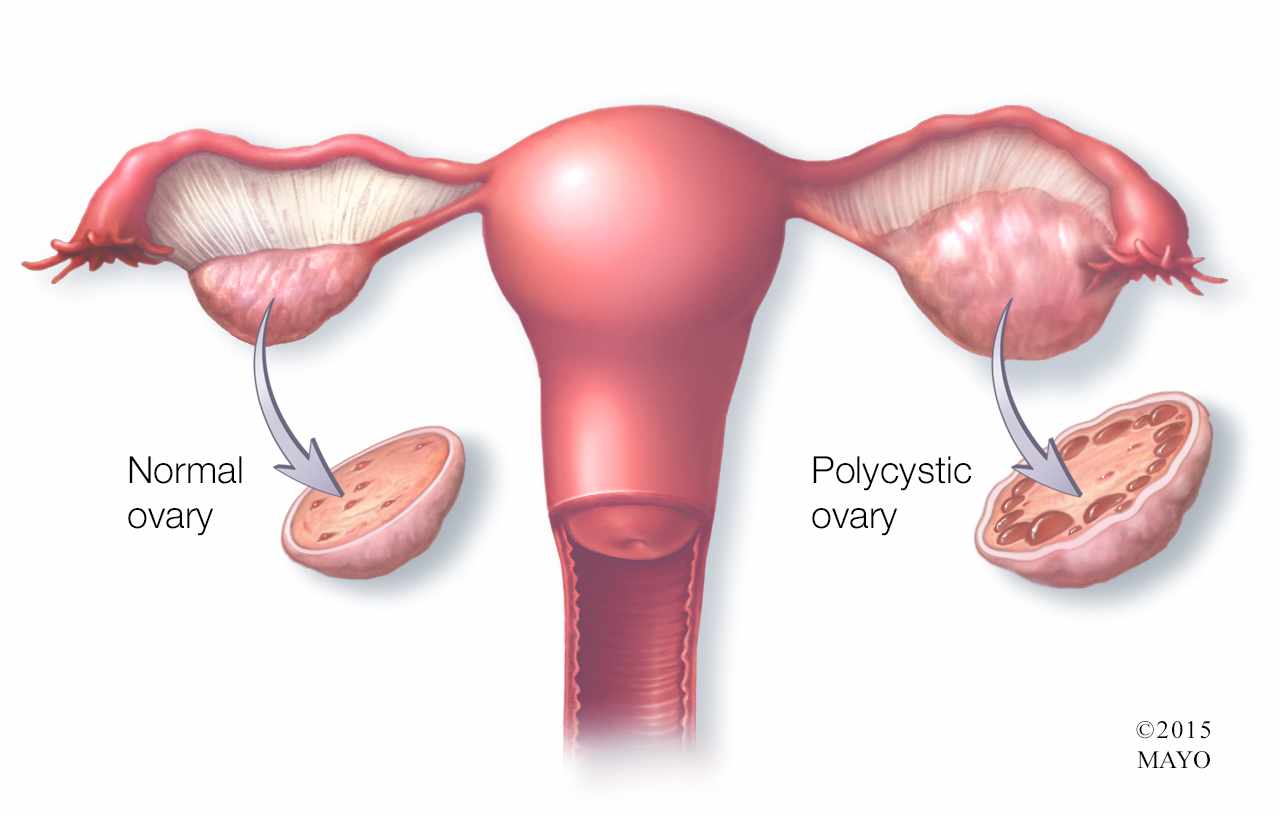
One of the commonest endocrine disorders, affecting approximately 5-10% of women in young and reproductive age group.
The syndrome is present throughout a woman’s lifespan from puberty across post-menopause and affects women of all ethnic groups.
Genetic, environmental factors, along with obesity, hormonal issues, ovarian and metabolic dysfunctions, are the main causes of PCOS.
Presence of excessive acne, scalp hair loss, and or hirsutism (terminal hair in a male-pattern distribution) or biochemically, by elevated serum levels of LH and testosterone.
Ovary having 12 or more follicles of 2 to 9 mm in diameter or and having a volume of greater than 10 ML.
Infrequent menstrual periods (fewer than six to eight periods per year).
Insulin resistance is a state in which the body’s cells do not respond to the metabolic effects of insulin hormone. When the body does not react to insulin, the level of glucose in the blood rise. This leads to more insulin to be secreted as the body tries to move excess glucose into cells. Such Impending Insulin resistance can lead to diabetes mellitus and is also associated with acanthosisnigricans a common skin disorder.
For the overweight women, weight loss may help in regularizing the menstrual periods. A moderate loss of 4-5 kg can be helpful in making menstrual periods more regular. Weight loss is also been found to improve raised cholesterol and insulin levels and thus relieving common symptoms as excessive hair growth and acne.
Achieving successful ovulatory cycles are the first step toward attaining a pregnancy. For overweight women and those with raised BMI, weight loss often achieves this goal. Medications may also be used to for successful ovulation.
Insulin-sensitizing drugs may be used in the treatment of PCOS. Such drugs help the body in responding towards raised insulin levels. In PCOS women such drugs can help decrease androgen levels thus improving ovulation. Restoring the ovulation would help in making the menstrual periods regular and more predictable.

